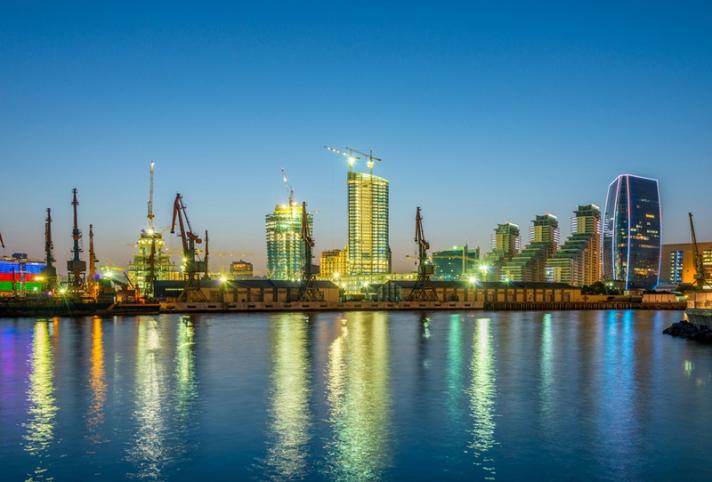Photo: Port of Baku, Elnur / Shutterstock
Azerbaijan, which as of 2014 controlled 9,500 ships and managed 35 million tonnes of marine traffic, was a signatory to 26 of the 64 treaties established by the International Maritime Organization (IMO), but its legislation was not completely up to date to operate under the international framework.
The European Union supported Azerbaijan’s effort to improve the country’s maritime safety and protect the marine environment via a Twinning project.
This project, managed by Spain’s International and Ibero-American Foundation for Administration and Public Policies (FIIAPP), has brought about significant changes in the maritime administration, improving and aligning the legislative environment with relevant ratified IMO treaties, EU directives and other international rules. 15 internal regulations have been drafted and submitted to the Cabinet of Ministers. Among these statutes was a key piece of legislation – the national Port Law, which was approved on 14 May 2014. The project lasted 24 months and was successfully implemented by the Ministry of Transport and Public Works of Spain in 2012-2014.
To discover how this project worked and what its impact was, read an interview with Fernando Collado, Resident Twinning Adviser.
Why did Azerbaijan need to pursue this project?
The goal was to increase maritime traffic, and this made it necessary to adapt its legislation to these standards. In Azerbaijan, the maritime administration was very young (2006), but, despite this, it had 26 signed International Maritime Organization (IMO) conventions, putting it at the level of Brazil and Argentina, and, since we’re talking about the European framework, it had more than even Austria. As Azerbaijan was making a significant effort in maritime legislation, we came to help develop tools to control emissions and spills or impose penalties, for example. With the entry of Poland, Hungary and other countries into the EU, the European Union discovered that Twinning projects were a very good tool for collaboration, especially at the legislative level. What this project did was to amend the existing legislation and generate new legislation based on the criteria of the legal framework of the European Union.
Did it also have a preventive aspect for the population?
Yes. In what is the equivalent of the Spanish Official State Gazette here, we’ve published the Ports Act, approved in June 2014, and prepared an act with respect to the Merchant Marine (marine traffic). […] This legislation translates into a situation where those who pollute have to pay and are penalised, and this is reflected in the cleanliness of the beaches and of the water. It must be remembered that petroleum facilities and traffic are absolutely compatible with citizen enjoyment of the coasts.
How were the waters of Azerbaijan?
Curiously, there were zones that were very clean despite being in ports used exclusively for crude oil traffic, while there were other zones that were not, where you could see the pollution perfectly. There was no absolute guarantee that all the beaches one might want to visit would be completely clean.
What has the Ports Act meant?
It must be remembered that here the legislation in place was from the former Soviet Union. When this country became autonomous, independent, what was left was a sort of patchwork. They had a maritime code, but this didn’t reflect all the possible situations of modern, global traffic in coordination with the entire international community. For this reason, starting in 2006, when this Maritime Administration was created, they started to enter into all these IMO conventions and to take on the commitment to place the country on the forefront at the legislative level.
Project title: Improvement of Maritime Safety, Security and Marine Environment Protection in the Republic of Azerbaijan
Project ID: AZ 11 ENP-PCA TP 17, 2012-2014

